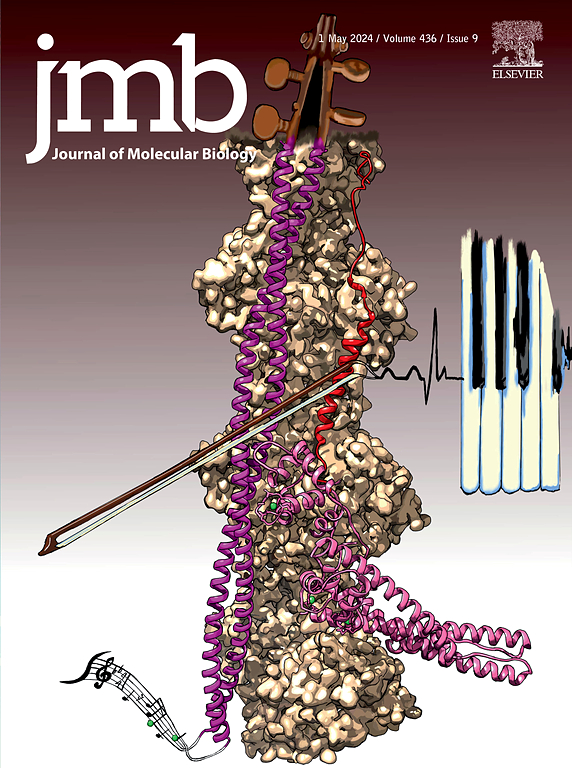TCM-ADIP: A Multidimensional Database Linking Traditional Chinese Medicine to Functional Brain Zones of Alzheimer’s Disease
IF 4.7
2区 生物学
Q1 BIOCHEMISTRY & MOLECULAR BIOLOGY
引用次数: 0
Abstract
Alzheimer’s disease (AD) is a complex neurodegenerative disorder, with existing therapeutic drugs typically targeting specific disease stages. Traditional Chinese medicine (TCM), known for its multi-target and multi-mechanism therapeutic approach, has demonstrated efficacy in treating various stages of AD. In the present work, through a systematic review of classical Chinese medical texts, the formulae for preventing and treating AD were identified. Meanwhile, the active ingredients within these formulae were extracted and cataloged. A comprehensive bioinformatics analysis of omics data was performed to identify differentially expressed genes across different functional brain zones in AD patients at various stages. Finally, by integrating the multidimensional data, we proposed the first database, TCM-ADIP, dedicated to TCM based AD prevention and treatment, which is freely available at https://cbcb.cdutcm.edu.cn/TCM-ADIP/. TCM-ADIP not only supports interactive searching of multidimensional data, but also provides tools for gene localization and functional enrichment analysis of formulae, herbs, and ingredients for AD intervention in specific brain zones. TCM-ADIP fills a crucial gap in existing databases, offering a comprehensive resource for TCM in the treatment of AD.

TCM-ADIP:连接传统中医药与阿尔茨海默病脑功能区的多维数据库。
阿尔茨海默病(AD)是一种复杂的神经退行性疾病,现有的治疗药物通常针对特定的疾病阶段。中医药以多靶点、多机制的治疗方法著称,在治疗阿尔茨海默病的不同阶段均有疗效。本次研究通过对中医经典著作的系统性回顾,确定了预防和治疗 AD 的方剂。同时,对这些方剂中的有效成分进行了提取和编目。对omics数据进行了全面的生物信息学分析,以确定AD患者在不同阶段不同脑功能区的差异表达基因。最后,通过整合多维数据,我们提出了首个中医药AD防治数据库--TCM-ADIP,该数据库可在https://cbcb.cdutcm.edu.cn/TCM-ADIP/ 上免费获取。TCM-ADIP不仅支持多维数据的交互式检索,还提供了用于特定脑区AD干预的方剂、药材和成分的基因定位和功能富集分析工具。TCM-ADIP 填补了现有数据库的重要空白,为中医药治疗 AD 提供了全面的资源。
本文章由计算机程序翻译,如有差异,请以英文原文为准。
求助全文
约1分钟内获得全文
求助全文
来源期刊

Journal of Molecular Biology
生物-生化与分子生物学
CiteScore
11.30
自引率
1.80%
发文量
412
审稿时长
28 days
期刊介绍:
Journal of Molecular Biology (JMB) provides high quality, comprehensive and broad coverage in all areas of molecular biology. The journal publishes original scientific research papers that provide mechanistic and functional insights and report a significant advance to the field. The journal encourages the submission of multidisciplinary studies that use complementary experimental and computational approaches to address challenging biological questions.
Research areas include but are not limited to: Biomolecular interactions, signaling networks, systems biology; Cell cycle, cell growth, cell differentiation; Cell death, autophagy; Cell signaling and regulation; Chemical biology; Computational biology, in combination with experimental studies; DNA replication, repair, and recombination; Development, regenerative biology, mechanistic and functional studies of stem cells; Epigenetics, chromatin structure and function; Gene expression; Membrane processes, cell surface proteins and cell-cell interactions; Methodological advances, both experimental and theoretical, including databases; Microbiology, virology, and interactions with the host or environment; Microbiota mechanistic and functional studies; Nuclear organization; Post-translational modifications, proteomics; Processing and function of biologically important macromolecules and complexes; Molecular basis of disease; RNA processing, structure and functions of non-coding RNAs, transcription; Sorting, spatiotemporal organization, trafficking; Structural biology; Synthetic biology; Translation, protein folding, chaperones, protein degradation and quality control.
 求助内容:
求助内容: 应助结果提醒方式:
应助结果提醒方式:


